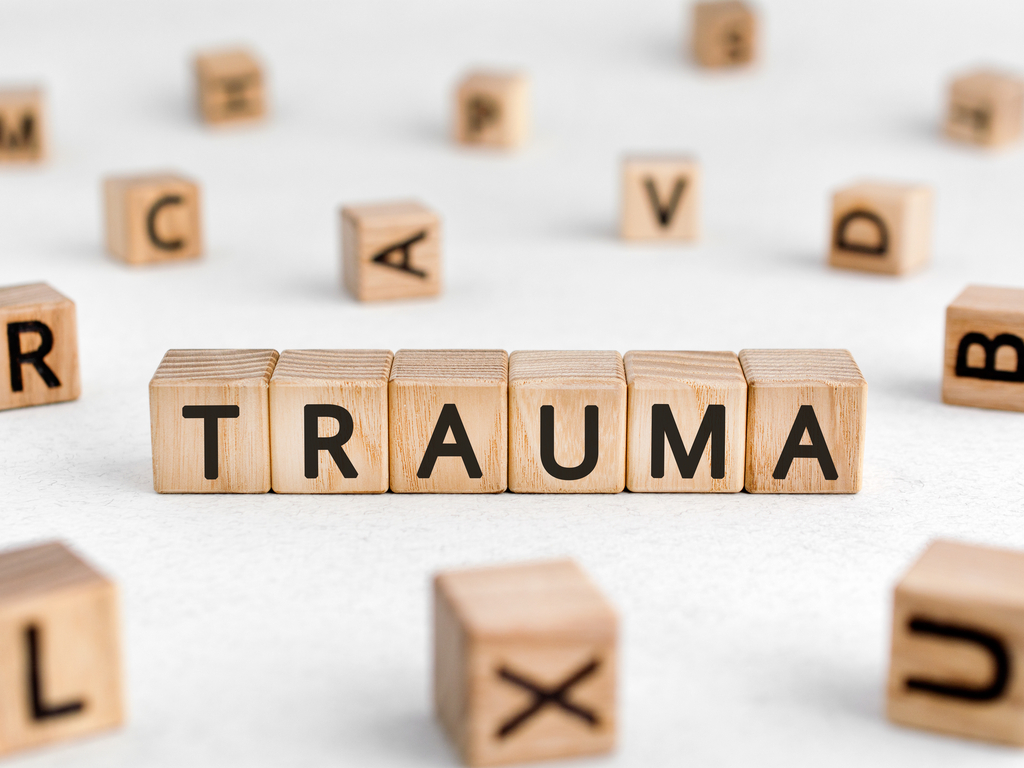The sinking feeling in your stomach, the ache in your heart, constantly being on the verge of tears – these are some of the horrible manifestations of hopelessness. It is a truly awful feeling that you wouldn’t wish upon your worst enemy. Guided meditation for hopelessness will help!

Hopelessness often occurs after a traumatic incident or when your willpower and resilience have been completely eroded. It feels as if you have reached the end of your tether and that there is no way back. It feels as if no amount of effort or intention can get you out of this pit of despair. But your feelings are not fact.
Hopelessness is an emotion, a crippling and devastating one, but an emotion, nonetheless. Like all other emotions, hopelessness is fleeting, it will eventually pass.
However, sometimes it feels as though the pain will never end and that you can’t build up the willpower to make the necessary changes in your life. Meditation can get you unstuck, and pull you out of the rut that your thoughts and emotions have put you in.
Meditation practices involving mindfulness, self-compassion, gratitude, acceptance, forgiveness, and stress relief can be instrumental in helping you recover from feelings of hopelessness. Guided meditation for hopelessness will help you down this path to recovery.
Guided meditations are conducted by an instructor who leads you through a meditation with a specific purpose in mind. There are many types of meditations. We are going to look at the guided meditations that are most beneficial for feelings of hopelessness.

Mindfulness and Guided Meditation for Hopelessness
Mindfulness is a term that is thrown around a lot nowadays. It is tough to explain in words as it is not a state that many people experience regularly. It essentially boils down to being aware of the present moment, without getting caught up in thought.
You attempt to nonjudgmentally acknowledge and accept what you’re thinking, feeling, and experiencing in the present moment. Trying not to get attached to things and just let them flow.
It all sounds very esoteric, and it is not easy to reach this state without practice, as you will find your mind constantly labeling and judging everything around you. This is why guided meditation can help show you how and where to begin.
Hopelessness can occur because you are thinking about a bleak future or reflecting on your troubled past instead of focusing on the present. In reality, neither the future nor the past exists. The past cannot be changed, and the future is completely unpredictable, so the negative use of energy consumed by focusing on non-existent states is pointless and destructive.
Hopelessness is one of the many ailments that result from you living outside the present moment. This article on Mindful The Science of Mindfulness – Mindful discusses eleven scientifically proven ways that mindfulness improves your health. Most of the benefits mentioned are related to the causes and symptoms of hopelessness. Guided meditation for hopelessness will give you the introduction to meditation that you need to incorporate mindfulness into your everyday life.

Self-compassion as Guided Meditation for Hopelessness
Usually, those who end up feeling hopeless are overly critical of themselves and even begin to despise themselves. They see no hope as they do not believe that they are capable or worthy of living a meaningful life. People that feel hopeless have lost the ability to love themselves.
Loving oneself is essential to living a happy and purpose-driven life. Without it, everything in your life will collapse. People constantly search for love externally, but no matter who you meet or what you do, this love will be empty and meaningless unless you love yourself first.
In truth, self-love is the only love that you really need. You cannot regain hope unless you give yourself the care and compassion needed to forgive yourself and start to rebuild. Dr. Emma Seppala at Stanford University discusses in this article the many benefits of practicing self-compassion. She also explains the reasons why it is essential. The Scientific Benefits of Self-Compassion – The Center for Compassion and Altruism Research and Education (stanford.edu)
Gratitude
Many of us are always in pursuit of the next big thing. We are constantly setting goals and pushing ourselves to achieve them. Once we achieve these goals, we are satisfied for an instant before we are hungry for the next conquest. We always feel that salvation lies at the finish line, but the truth is that reaching a materialistic goal will never completely fulfill you.
Inevitably, you will fail to reach some of these goals and fail to live up to your inflated expectations. This can lead you spiraling towards hopelessness. We are so busy focusing on the future and the next goal, that we fail to sit down and appreciate what we have accomplished or what we possess.
It seems no matter what we have, it is never good enough. Whether you reach your goals or not, you will eventually question the purpose of this pursuit, which can lead to feelings of hopelessness and confusion.
Practicing gratitude is the practice of focusing on what you have, no matter how insignificant relative to those around you, and being grateful for it. No matter how dire your circumstance, you always have something to be grateful for, whether it be a bed to sleep in, food to eat, or merely an opportunity to live another day.
This article written by Greater Good Magazine How Gratitude Changes You and Your Brain (berkeley.edu) discusses the scientifically proven ways that practicing gratitude can benefit you. These include the purging of negative emotions and even changing the structure of one’s brain! Life is short, so practicing gratitude allows us to enjoy what we have while we can. Guided meditation for hopelessness can help you feel more grateful as well.

Acceptance and Forgiveness
I have decided to mention both acceptance and forgiveness under a single heading as they are inextricably related. You cannot forgive yourself if you do not fully accept and come to terms with the reality of what has happened. Many of the harsh truths that life throws our way are difficult to accept and painful to confront.
We often prefer to avoid thinking about things that bring us pain by distracting ourselves through pushing away unwanted thoughts or wrongly placing blame. Remember, whatever you resist, persists. Even though you may not consciously think about whatever hurt you in the past, if you fail to accept what has happened, that thought will always lurk in your psyche or subconscious.
It will filter into other areas of your life, insidiously wreaking havoc on your thoughts and emotions. Guided meditation for acceptance will help you acknowledge, accept and process trauma and heal emotional scars.
The only way to deal with lingering pain is through acceptance. This is done by allowing yourself to feel the emotions that you have suppressed, while also being aware of the sensations and thoughts that occur in a detached and non-judgmental manner. Arguably, this is not easy to do and can bring up a lot of latent emotion. However, acceptance is the first step needed to heal.
Now, Forgiveness
Next comes forgiveness. This requires acceptance as well as compassion for yourself and others. If you don’t forgive, you will hold onto negative emotions about yourself or the world around you, which can cause you to lose hope.
The only way to truly be free of negative thoughts and emotions is to forgive those that brought you pain. Whether that be yourself or others. We blame ourselves far more than we should, even for things that aren’t our fault, so give yourself permission to let go.
It is easier said than done to forgive someone that has hurt you, but it is important to remember that holding onto a grudge, hate, vengeance, etc. only poisons you. By not forgiving them, you are allowing them to continue to cause you pain and anguish.
Forgiving them is about freeing yourself from the negative emotions that they have made you harbor, it doesn’t affect them. They will continue to feel the way they do whether you forgive them or not, but you will feel free. Guided meditations focused on forgiveness will show you the way.
Stress relief
Hopelessness can be the result of being under constant stress. Stress can easily become overwhelming as not many have the coping mechanisms necessary to deal with it when it arises. Prolonged stress can damage you physically, mentally, and emotionally leading to burnout or a breakdown.
Stress is created in the mind. Most of the time, we unintentionally create our own stress by the way we choose to think about certain events. If your thought patterns are habitually focused on stress, everything you do and think gives you a sense of fear, dread, and anxiety. These feelings will eventually drag you down to hopelessness and despair as no matter how hard you try, you cannot escape stress.
This is because your mind is addicted to it and you don’t even know it! Luckily, one of the things that meditation is best for is stress relief. And a guided meditation, which is focused on stress relief, will show you how to get out of the cycle of thought that generates your stress. Because, if you think about it, you can only be stressed if you are making premature assumptions about an unknown future.
There is extensive scientific research about how meditation can lead to stress relief. A guided meditation for hopelessness is well worth your time if you’re feeling a bit stressed out.

Final Remarks About Meditation for Hopelessness
Please note that if you are experiencing overwhelming feelings of hopelessness, despair, and depression, please contact a mental health professional if you can. Meditation is not a cure-all, it is merely a tool that can be used to tackle some of the emotional and psychological battles that we all face. But make no mistake, meditation can be a transformative and life-changing exercise for many.
Meditation isn’t easy to do, as we aren’t accustomed to being mindful and aware of the present. This is why guided meditations help show you the way and accelerate the learning process.
Hopelessness is one of the worst feelings in life. But you have to remember, that’s exactly what it is – a feeling. These feelings are created by the thoughts in our minds. Meditation for hopelessness helps us detach ourselves from our thoughts and feelings and return to what matters – right now.
